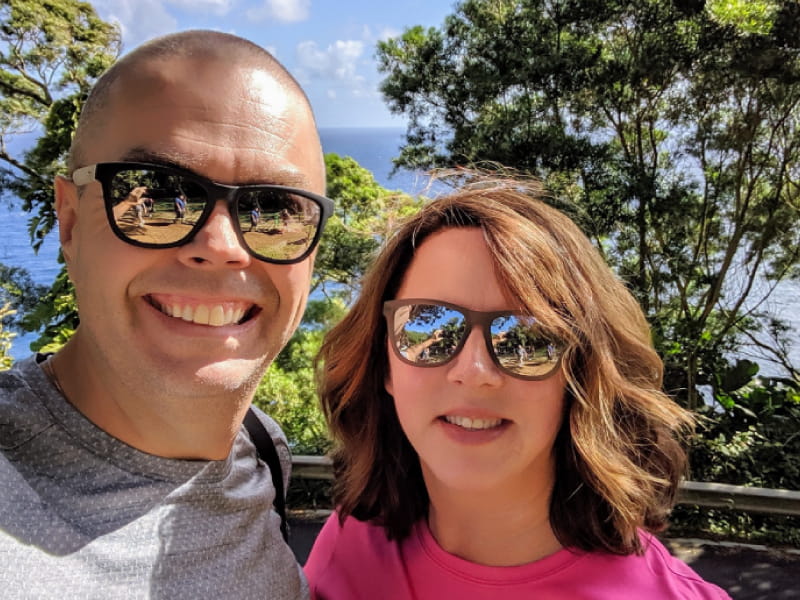After heart attack, mini-stroke and stroke, survivor has some advice
By American Heart Association News

Andy Beal woke up at 4 a.m. and went to the bathroom as he'd done hundreds of times before. This time, though, the 44-year-old North Carolina man had trouble getting back into bed.
"I collapsed. I had to like roll into bed," Andy said. "The entire right side of my body was paralyzed."
When his wife, Sheila, asked if he was OK, all Andy could say was, "I feel weird."
Andy answered "18" when she asked him where they lived. There is no 18 in their Raleigh address.
Fear set in as Sheila called 911. The dispatcher asked her to perform some tests that would help see if he was having a stroke. Have Andy smile. Raise his arms. Repeat a common phrase. Andy struggled.
When paramedics arrived 10 minutes later, he was fine.
They said Andy may have had a transient ischemic attack – a mini-stroke. Call the doctor in the morning, they said.
"I went back to sleep," said Andy. "But my wife wouldn't let it go."
Sheila went to the computer and started researching TIAs. She came across the American Stroke Association website.
"It was very clear, and I'm glad it was very clear, that a TIA can be a precursor to a bigger, more severe stroke," Sheila said. "That's when I knew it was nothing to play around with."
In the morning, the doctor told the couple to go the emergency room. Andy was lying on a bed in the ER when a massive stroke hit. He was airlifted to Duke University Hospital in Durham, where a specialist performed a thrombectomy procedure to remove two clots from his brain and inserted a stent in an artery in his neck.
"A couple hours later, I could move more and understand everything," Andy said. "Long story short, just two days later, I walked out of the hospital non-assisted."
During the assessment process for his stroke, doctors discovered he'd had a prior heart attack. Further tests led to him getting a stent in a coronary artery.
Andy thinks he had the heart attack eight months before during a cruise. He'd felt some aching but thought he was dehydrated. He took that experience as a wake-up call and decided to get in shape.
He was obese and had high blood pressure and a genetic form of high cholesterol diagnosed in his 20s – through an eye exam, oddly enough.
"I do truly believe if I hadn't at that point started getting into shape, by the time that stroke came around I probably wouldn't have survived," Andy said.
"The words doctors used over and over again was 'remarkable recovery,'" Sheila said.
It will be two years in April since Andy had his stroke and learned of his minor heart attack. He's now a certified personal trainer and weight management specialist. His website, AndyBeal.fitness, features before-and-after photos of his 75-pound weight loss.

"The personal training is not really a business. It's more of a giving back," said Andy, who also is a reputation management consultant. "There's so many people that don't know their own risks, and I just want to be that person that is just gently prodding, 'Hey, get your cholesterol checked. Watch your blood pressure. Watch for these types of foods. Don't smoke.'"
Besides eating healthy and working out, Andy maintains his health through a combination of medications and a heart monitor. He and Sheila also check in with each other if they don't feel right and talk through their options, including whether they should go the emergency room.
Sheila urges people to not be afraid to act.
"Be proactive. Don't sweep things under the rug," she said. "I'm glad we erred on the side of caution that morning even though Andy felt perfectly fine. I'm so glad we were in the emergency room when the stroke happened, the big one."
Stories From the Heart chronicles the inspiring journeys of heart disease and stroke survivors, caregivers and advocates.
If you have questions or comments about this story, please email [email protected].





